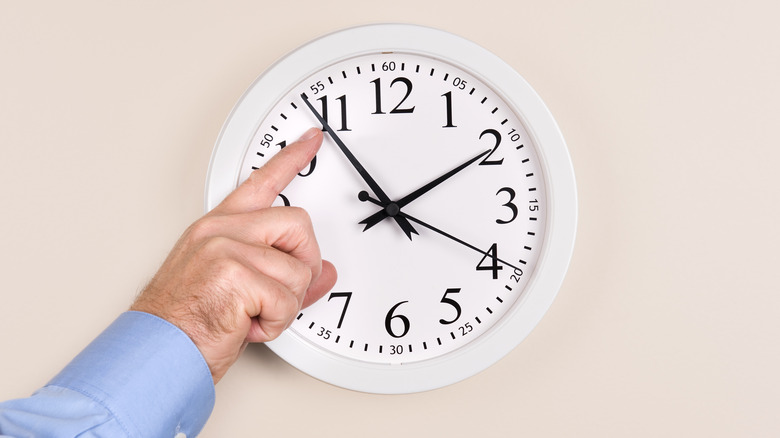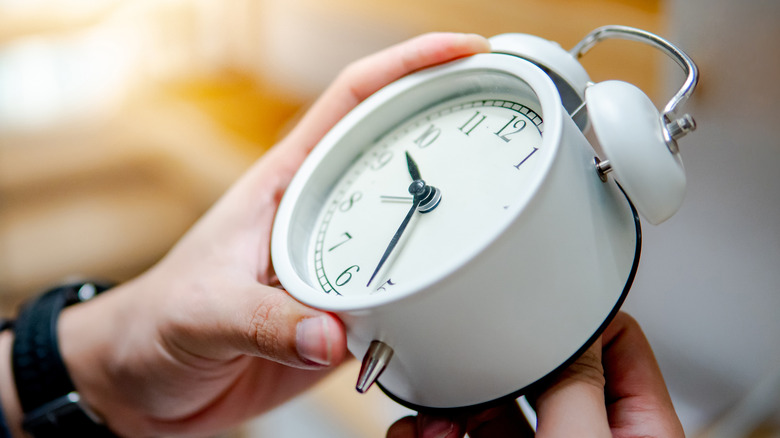Why Sleep Experts Want To End Daylight Saving Time
With daylight saving time coming up, the debate regarding its value fuels up once again. You may have strong opinions on daylight saving versus standard time, or you may not have an opinion one way or another. You may also be one of the many people who gets confused and asks, "Are we gaining or losing an hour?" each time the semiannual time change rolls around.
For those who need a reminder, daylight saving is when the clocks jump ahead one hour, providing us with more sunlight in the evening hours. According to NPR, daylight saving time was originally put into practice in the United States to save on energy costs but stuck around thanks to the boost it provided the economy.
Michael Downing, daylight saving time expert and professor at Tufts University, explained in a 2015 video published on Tufts Now, "What we don't tend to know as Americans is that the biggest lobby on behalf of daylight saving since 1915 in this country — and to this very day — is the Chamber of Commerce. They understood something very early on: If you give workers daylight when they leave their jobs, they are much more apt to stop and shop on their way home," (via NPR). Regardless of the retail-friendly aspects of daylight saving time, sleep experts are now calling for its termination, pointing to the negative effects it has on the mind and body.
Concerns about daylight savings time
If you've ever had trouble adjusting to the time change, you're not alone. According to Northwestern Medicine, the transition from standard time to daylight saving not only causes sleep disturbances but has also been linked to spikes in heart attacks, traffic accidents, and mental health issues.
Research published in the Journal of Clinical Sleep Medicine recommended abolishing time changes and adopting permanent standard time, pointing to the benefits it provides our internal clock and sleep quality. Despite the advice from sleep experts, however, there is a push by government officials to adopt year-round daylight saving time (via U.S. News & World Report).
Sleep researcher and consultant to the American Academy of Sleep Medicine's Public Safety Committee, Erin Flynn-Evans, told U.S. News & World Report, "There is no question that putting an end to seasonal time change is best for Americans' well-being. However, a shift to permanent daylight time — which would result in more morning darkness in the winter — would result in most people experiencing a misalignment between the body's daily rhythm and the timing of routine social obligations like work and school. Therefore, permanent year-round standard time is the best choice to most closely match the circadian sleep-wake cycle."


